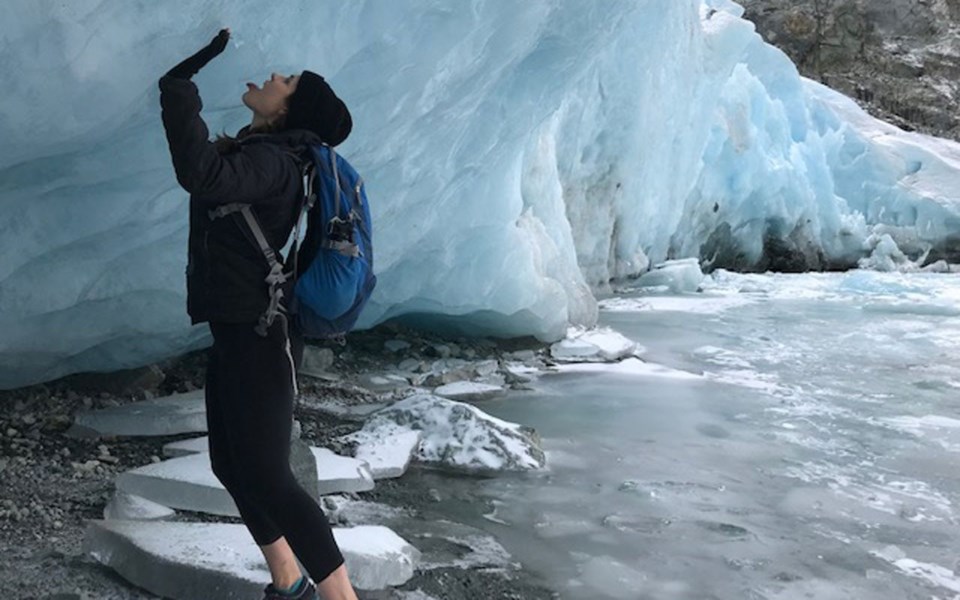The other day, I caught a glimpse of myself in a car window as I was exiting Olives in Function Junction.
Double fisting vegan jerky in one hand and kombucha in the other, I thought, "Holy sh*t, conversion to B.C. hippie complete."
Our province takes a lot of ribbing from the rest of Canada. I like to think much of it stems from jealousy. As I write this, it's a balmy 3ºC in Whistler while the rest of Canada is suffering through a "polar vortex." We are labelled tree huggers, lefties, pie-in-the-sky hippies. Torontonians in the midst of the rat race envision us clad in Lululemon running up and down mountains. Albertans think we're singing "Kumbaya" at pipeline blockades.
And, to be honest, while it might not be accurate for everyone, that sounds like a pretty good hang-10-cowabunga, West Coast life to me.
Last week, an Angus Reid Institute study found that 54 per cent of British Columbians felt they had more in common with Washington state than the rest of Canada. It also found that the rest of Canada has mixed views on which provinces constitute "the west" of the country.
The former finding fits with my informal polling of British Columbian friends. Most people I know feel the West Coast is a more cohesive region than Western Canada. Certainly, lifestyle-wise, we have more in common with Washington, Oregon and California than our neighbours in Alberta.
Of course this doesn't describe everyone, but in general, we value our relationship with the environment, adventurous spirits, and fulfilment in outdoor pursuits.
Alternatively, Albertans (disclaimer—I'm allowed to weigh in on this since I was born-and-raised in Wild Rose Country) seem to value a comfortable life, economic stability, and the traditional path of marriage, home ownership and kids.
And just in case there's dispute on that last point, consider that nearly everyone I grew up with in rural Alberta (entering their mid-30s) have, at minimum, two progeny while most of my B.C. friends plan to squeak out one small, outdoorsy child under the wire, if at all.
Yes, we are certainly different and this has created a massive divide in relations between the two provinces, particularly as the ongoing saga over the Trans Mountain Pipeline continues.
For example, I sent out close to a million text messages to friends and family in Alberta after reading a story in December about Albertans who organized a truck rally in Nisku, a town just outside Edmonton, to show their support for the pipeline.
Like me, they found this redneck protest (dude, if you can't be bothered to even get out of your vehicle, I doubt your commitment to the cause), equal parts hilarious and embarrassing.
But the conversation that followed was the most eye opening. The people I'm closest to in Alberta—people I consider pretty left-leaning—questioned my anger about the government-purchased pipeline.
Moral arguments on the grounds of climate change aren't going to change the minds of people who put food on the table with oil patch jobs, they argued. Electric vehicles are the domain of the wealthy and we still need gas-powered cars, they said. But the one and only argument I could get on board with was that Rachel Notley and the NDP have done a whole lot of social good in the province that doesn't get reported in B.C.—we just hear aggressive pipeline rhetoric. They are terrified, with good reason, of a Jason Kenney-led Alberta.
Perhaps the most thought-provoking question, though, came from a family member who texted, "Would you care as much if you didn't live in B.C., realistically?"
I processed it thoughtfully. I had always cared about the environment, even while living in Alberta. But that care was kind of abstract in that I love animals, want to breathe clean air, and tear up at videos of turtles with straws wedged up their noses.
In B.C., my love of the environment is more concrete, wholly tangible. I climb up mountains and touch glaciers, wander through old-growth forest and swim in the ocean.
Intellectually, it is a realistic expectation that Albertans should care about clean drinking water, forest-dwelling animals and an intact ozone layer above personal profit. But, practically speaking, can we really expect them to care as deeply as we do living amongst the earth's abundance?
Therein lies the greatest divide between the two western-most provinces of "Western Canada."
I'm not sure how to work towards closing that gap—particularly given the tiny slice of time we have left to prevent climate catastrophe. But something tells me that considering the wildly different conversations each province is having might be a step in the right direction.




